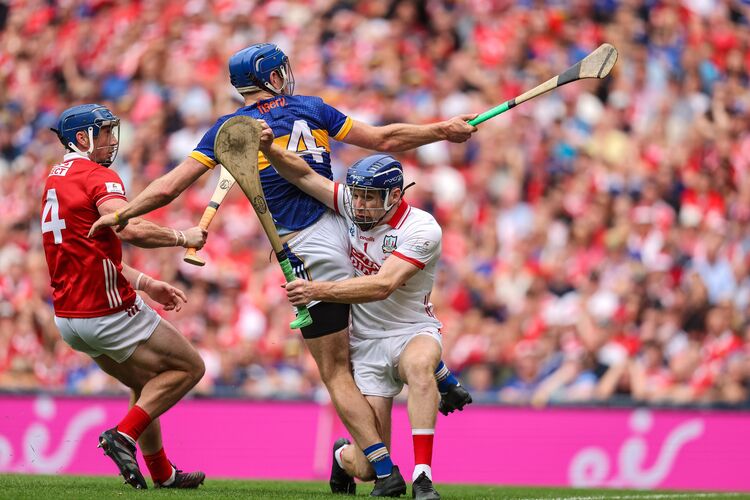By Susan Falvella Garraty
Washington, D.C. --- Might it have stopped the Northern Ireland peace process before it even got off the ground?
Could it have landed President Bill Clinton or his advisors in court, or even prison?
Some will argue so after the United States Supreme Court ruled this week that free speech rights under the First Amendment do not extend to humanitarian groups seeking to guide some combatants from violence towards peaceful action.
The court voted six to three affirming elements of The Patriot Act that preclude "material support" for any group on the U.S. State Department's index of Designated Foreign Terrorist Organizations.
The Continuity Irish Republican Army and the Real IRA are both on the list that contains forty five such designees.
Under the court ruling, material support includes offering expert advice on humanitarian issues, conflict resolution training, or even guidance on appealing to world bodies such as the United Nations regarding human rights offenses.
On the surface at least, it would appear that any overt effort in the U.S. to now wean "dissident" republican groups off violence might pose severe legal problems.
Chief Justice John G. Roberts, writing for the majority, said the law was a preventive measure.
"It criminalizes not terrorist attacks themselves, but aid that makes the attacks more likely to occur," Roberts wrote.
In an unusual step, Justice Stephen Breyer read the dissent from the bench. He said national defense concerns should not trample the rights implicitly outlined in the Constitution.
"Our decisions must reflect the Constitution's grant of foreign affairs and defense powers to the president and to Congress but without denying our own special judicial obligation to protect the constitutional rights of individuals," said Breyer.
The lawsuit that led to the decision began back in the 1990s when civil rights lawyer Ralph Fertig and the Humanitarian Law Project were trying to help a Kurdish group, the PKK, bring human rights complaints to the United Nations.
In a telephone interview from his USC office in Los Angeles, Fertig told the Echo he was devastated by the court's decision.
"Under the law today, former President Jimmy Carter would have been arrested for his just talking to some groups in the Middle East as he tried to help with their peace efforts," Fertig declared.
"I've been a civil rights lawyer for many years and I've always thought the First Amendment was the most sacred of our civil rights. It's the first time we've made speech a crime even when it was directed completely towards peaceful activity."
Fertig said his whole intent was to guide groups and individuals away from violence and towards non-violent solutions. But he cannot afford another protracted legal battle and will not pursue advising Kurdish groups in the future until the law is changed.
Fertig and others involved in the case did not dispute the validity of the law precluding financial support or the barring of members of the designated groups or their affiliates from traveling to the United States.
President Barack Obama calls the material support clause an indispensable tool to root out those in the U.S. who would support the designated terrorist groups. His Supreme Court nominee, Elena Kagan, argued the case before the high court on behalf of the government as Solicitor General two months ago.
Fertig and his supporters say they will now work through Congress to try and delineate the difference between offering financial or more nefarious support, such as obtaining arms or weaponry versus training in non-violent international legal or humanitarian advocacy.
David Cole, who helped argue for Fertig and the other defendants said, "This decision basically says the First Amendment allows making peacemaking and human rights advocacy a crime."









